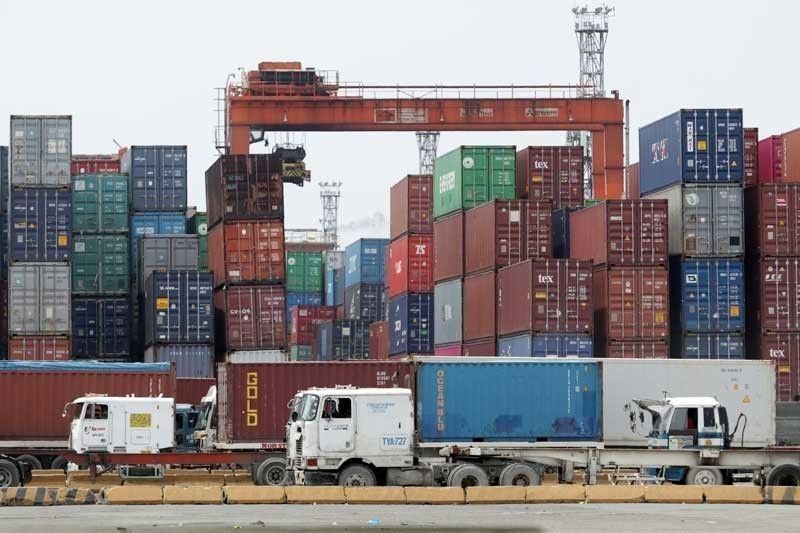Corruption, other barriers hound US exporters to Philippines

MANILA, Philippines — US exporters continue to face barriers to expanding trade with the Philippines such as corruption, phytosanitary and sanitary measures, foreign investment restrictions, as well as concerns on intellectual property (IP) protection, the Office of the US Trade Representative (USTR) said.
In its 2020 National Trade Estimate Report on Foreign Trade Barriers, USTR said US exporters face barriers to doing business and trade with the Philippines, foremost of which is the longstanding problem of corruption.
“National and local government agencies, particularly the Bureau of Customs, are beset with various corruption issues. Both foreign and domestic investors have expressed concern about the propensity of Philippine courts and regulators to stray beyond matters of legal interpretation into policymaking, as well as the lack of transparency in judicial and regulatory processes. Investors have also raised concerns about courts being influenced by bribery and improperly issuing temporary restraining orders to impede legitimate commerce,” the USTR said.
Aside from corruption, the USTR also identified sanitary and phytosanitary measures such as cold chain regulations and import clearance requirements as barriers to trade with the Philippines.
USTR said the Philippines has been implementing a two-tiered system for regulating the handling of frozen and freshly slaughtered meat for sale in local wet markets and such has the effect of imposing more burdensome requirements on the sale of frozen meat including imported meat, than the sale of freshly slaughtered meat from animals raised domestically.
To address this issue, the US and the Philippines announced as part of the October 2018 Joint Statement their intent to collaborate to develop cold chain requirements and best practices in the Philippines.
The USTR also said the Philippine Department of Agriculture requires importers to obtain a sanitary and phytosanitary permit and to transmit the permit to the exporter prior to shipment of any agricultural product, a requirement which adds costs, complicates the timing of exports, and prevents the rerouting to the Philippines of products intended for other markets, but not sold there for commercial reasons.
In addition, the requirement prevents an exporter from reselling an imported product if the importer refuses to accept delivery or abandons the shipment.
USTR said the Philippines also has restrictions on foreign investment which make it hard for US firms to business in the country.
Under the 11th Foreign Investment Negative List (FINL) issued in October 2018, mass media and practice of professions particularly fields such as radiology, law, and technology, as well as small-scale mining, and cooperatives prohibit foreign ownership.
Meanwhile, the following are allowed 100 percent foreign participation: internet businesses; teaching at higher education levels provided the subject is not covered by board or bar examinations; training centers engaged in short-term high level skills development not part of the formal education system; adjustment companies, lending companies, financing companies and investment houses; and wellness centers.
The FINL also allows up to 40 percent foreign participation in contracts for construction and repair of locally funded public works, as well as private radio communications network.
USTR said the Philippines’ government procurement system is another barrier to trade as it generally favors Philippine nationals or Filipino-controlled enterprises for procurement contracts with Republic Act 9184 or the Government Procurement Reform Act specifying minimum Filipino ownership requirements for suppliers and contractors of goods and consulting services (60 percent) and infrastructure projects (75 percent).
Domestic goods are also given preferential treatment over imported products in the bid evaluation process.
USTR said US cloud service providers are active in the Philippine market, but they continue to face constraints in competing for government projects with Philippine government agencies required to procure cloud computing services from the Government Cloud, the cloud infrastructure set up by the Department of Information and Communications Technology.
“These restrictions could prevent Philippine government agencies from accessing best-in-class cloud services,” USTR said.
IP protection and enforcement in the Philippines also remains a concern for US firms.
“US right holders report issues with increasing online piracy, counterfeit drugs, and counterfeit apparel,” USTR said.
It said stakeholders have also criticized weak provisions in the country’s patent law that may preclude the issuance of patents on certain chemical forms unless the applicant demonstrates increased efficacy.
USTR added stakeholders are concerned with ineffective IP enforcement, including a lack of capacity and expertise.
- Latest
- Trending































